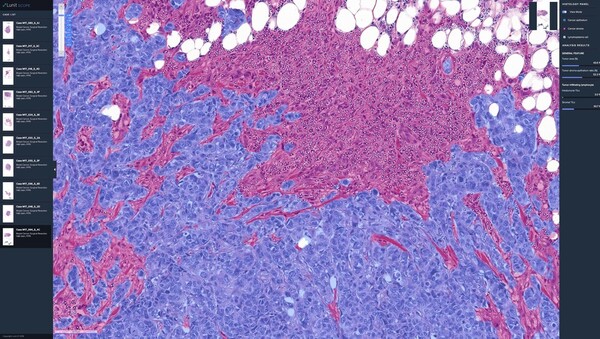Digitalizing wind sweeps Korean pharma industry seeking new growth engine < Device/ICT < Article

The Covid-19 pandemic speeds up the digital transformation of the domestic biopharmaceutical industry. As a result, the convergence of IT technology based on artificial intelligence, big data, cloud computing, and the biopharmaceutical sector is particularly brisk.


 



“The spread and prolongation of Covid-19 are speeding up the digital transformation of all industries,” said Lee Hae-seong, an executive at KT Digital and Bio-health Business Team, in his contribution to the 24th issue of the KPBMA (Korea Pharmaceutical and Bio-Pharma Manufacturers Association) Brief. “Notably, the phenomenon is occurring in the biopharma industry rapidly.”


Specifically, Lee analyzed that the biopharma sector’s digital transformation would take concrete shape from manufacturing, business marketing, and research and development.


manufacturing, he predicted that businesses could make the most of the IT infrastructure to optimize the complicated manufacturing process of biopharmaceutical products using various raw materials. By renovating the production process, they can maximize the harvest rate and enjoy economic benefits in managerial activities.


forecasts that digitalization in business and marketing will help businesses sophisticate customer relationship management systems, predicting optimal demand and supply among patients, hospitals, drugmakers, pharmacies, and insurers.


the research area, digitalization will help diagnose and predict diseases early on, producing efficient results in selecting proper treatments and managing prognoses. In the development sector, Lee said it would make the most of the cloud platform in areas ranging from clinical trials to approval and permission, bringing about innovation in patient-oriented and data-based clinical research.


Reflecting such analyses, pharmaceutical companies and IT solution providers are competing to jump into the digital healthcare market.


For instance, Kwangdong Pharmaceutical made a strategic partnership with Healthport, which developed “Good Pharm,” an integrated solution for running a pharmacy, on Monday. Good Pharm provides services for general customers, including prescription scanning, medication counseling, and dry-type recommendations, in addition to pharmacist functions, such as inventory management and drug orders,


Through this contract, Kwangdong will conduct offline business activities for Good Pharm’s member pharmacies. In addition, the company aims to expand the exterior of KD Shop, an online mall exclusively for pharmacies that opened last year, while securing new growth engines by utilizing synergy between know-how accumulated through the pharmaceutical distribution business and the technology of startups. The series of services provided by Healthport is directly connected to KD Shop.


“Our strategic partnership with Healthport is being led by Kwangdong’s business team, which successfully launched the KD Shop last year, focusing on providing service to maximize pharmacists’ managerial convenience,” a company official said.


Handok is also positive in introducing digital transformation. On Monday, it signed an MOU with Microsoft Korea to accelerate the process at its headquarters office in southern Seoul.


Handok plans to transform its IT infrastructure to Microsoft cloud service and platform called “Azure,” making data assets available anytime, anywhere, in real-time. In particular, it will establish a big data platform with Azure to turn various internal systems and external information into data and improve business and work accuracy and efficiency.


Handok stressed that it had increased job efficiency by automating simple jobs in all areas, including finance, business, production, and cost controls, and improved response to new situations and job accuracy by strengthening the connection between its up-to-date automation systems of integrated manufacturing implementation system, laboratory information management system, and automated production planning system.


Digitalization is also brisk in developing new drugs, with companies vying to release solutions and services.


JNPMEDI, a medical data platform company, provides Maven Clinical Cloud, a digital-based clinical trial operation and data management solution. Maven Clinical Cloud, provided as Software as a Service (SaaS), enables users to manage numerous data throughout clinical trials. It is also designed as an open architecture, making connection possible with various digital healthcare devices, such as AI medical equipment and wearables.


Portrai, an AI-based new drug developer, studies “spatial transcriptomics,” which solves difficulties and challenges in developing new drugs with innovative digital technologies developed independently. Spatial transcriptomics provides information on the location of human tissues so that cancer patients can know the exact location of cancer cells, making more effective response possible because it informs the exact location of the treatment when developing a new drug.


Bas Genbio has developed a platform called DEEPCT (Deep learning-based Clinical Trials), an AI-based new drug development platform based on genetic cohort data. DEEPCT verifies drug effectiveness, clinical optimization, and discovery of new drug candidates without taking drugs. AI technology that learns large cohort data predicts drug effectiveness, increasing efficiency in discovering new drug candidates.


Last year, the company signed an exclusive contract with Yonsei University Health System to secure 156,000 genetic cohort data, as well as securing 480,000 more from a U.K. biobank, and 1,000 dementia data for Alzheimer’s Disease Neuroimaging Initiative (ADNI. )


 



Lunit, a medical AI company, is also expanding its business to new drug development, emerging as a company that develops new drugs based on AI biomarkers. Since last year, Lunit has signed joint research agreements on new drug development with domestic and foreign hospitals and bio companies. When partner institutions and companies deliver new drug candidates in the anticancer field, Lunit will use AI image diagnosis technology to find biomarkers. In this process, the AI biomarker platform Lunit SCOPE IO is used.